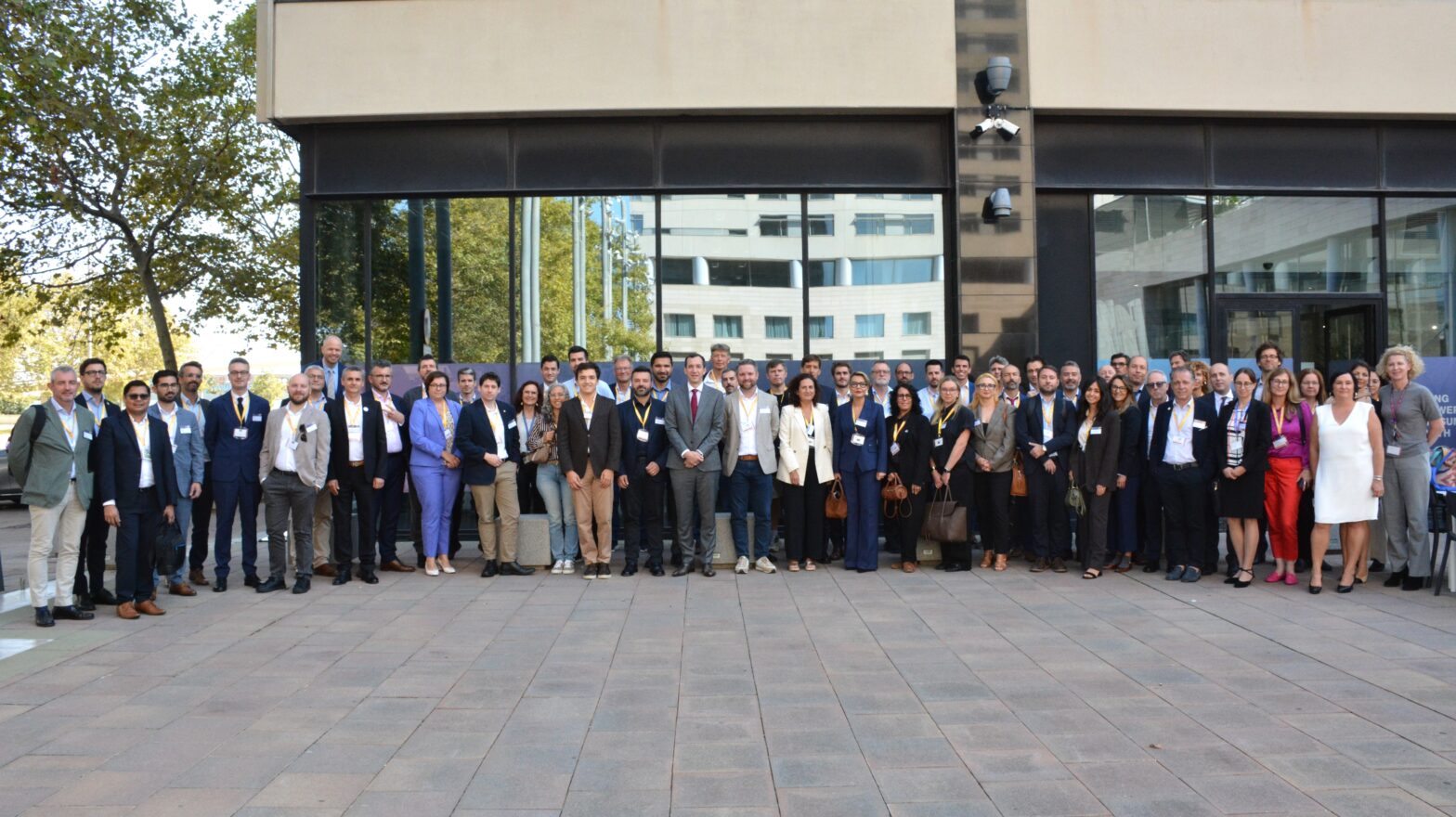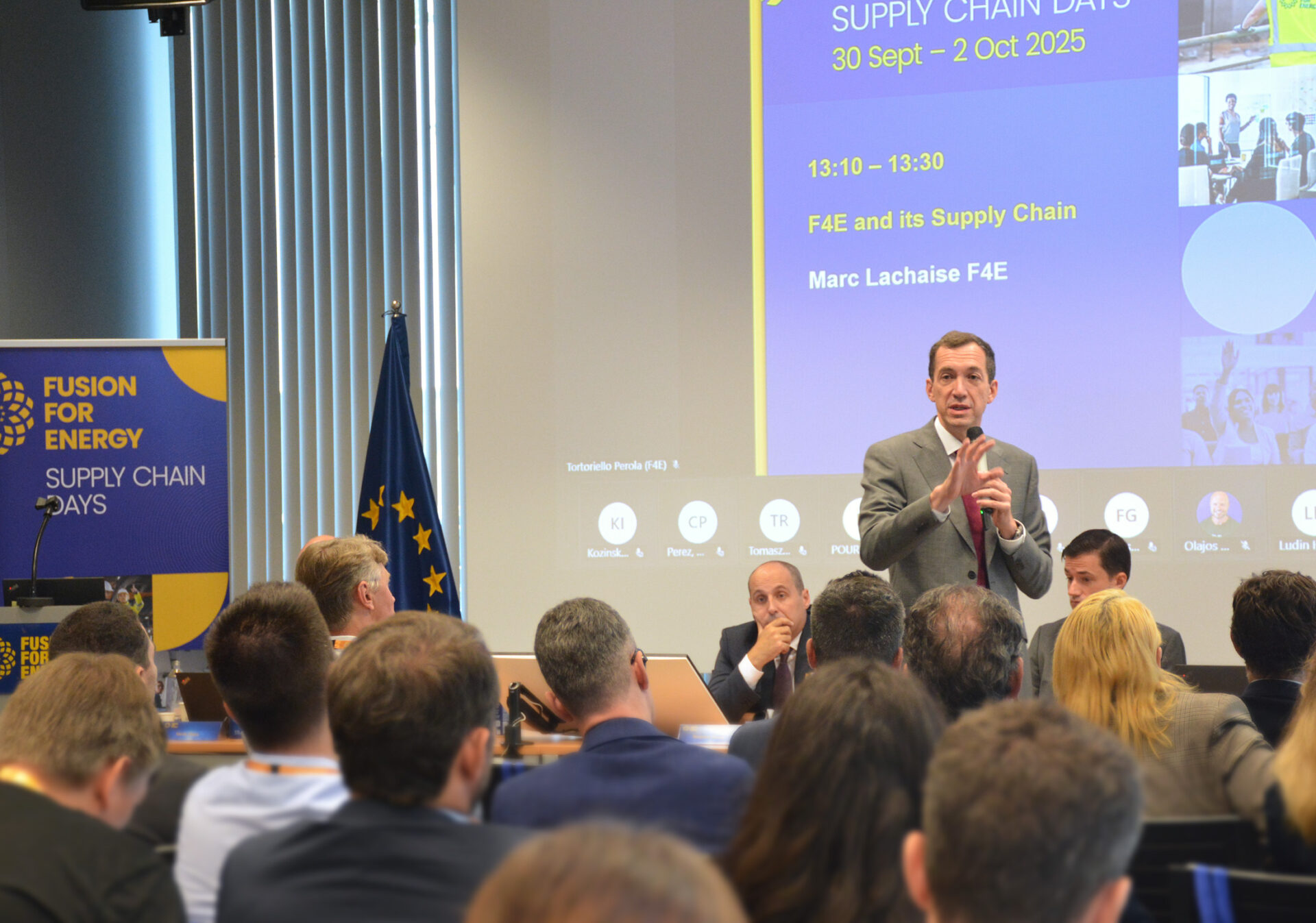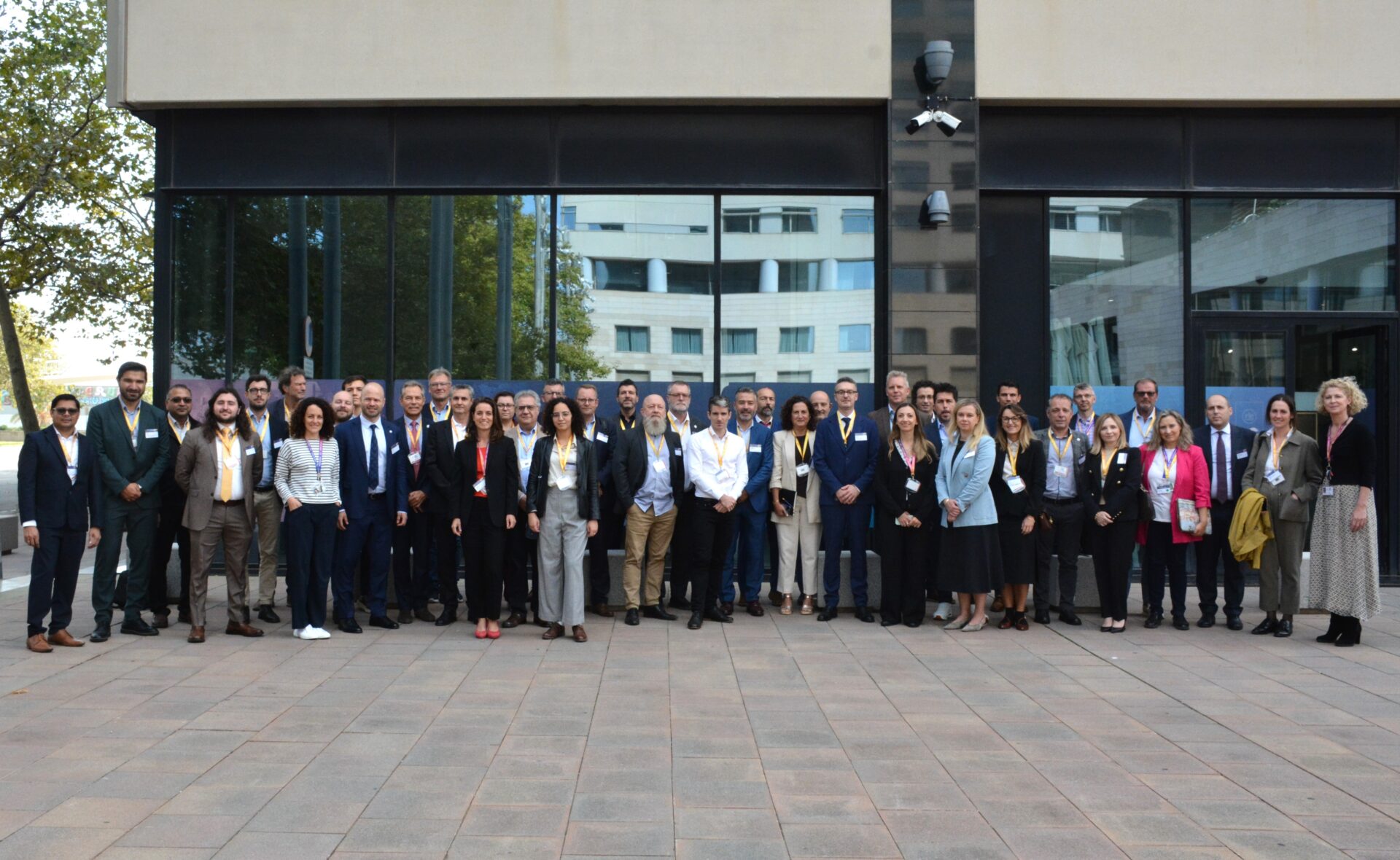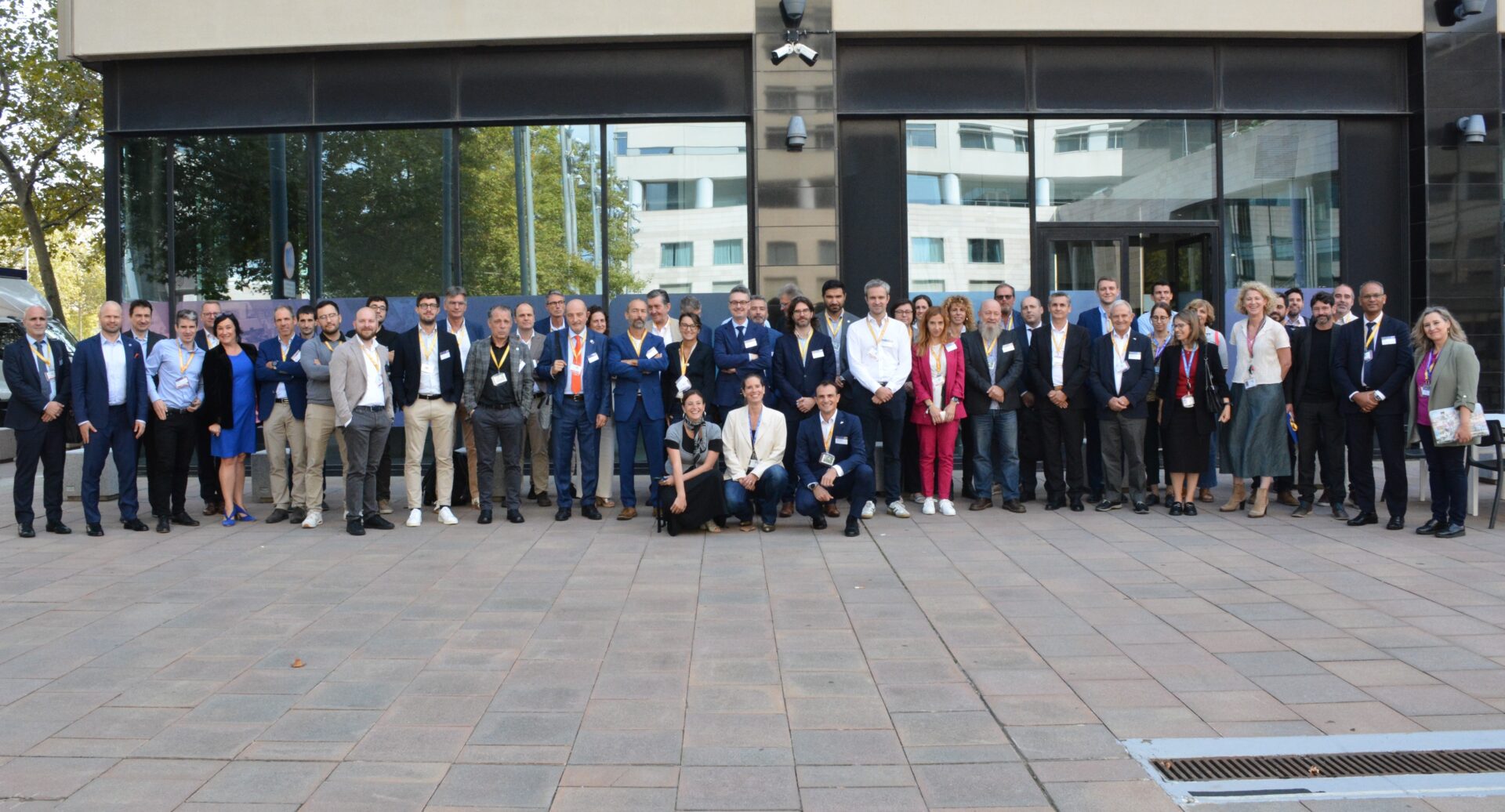F4E Supply Chain Days bring together European companies of different sizes

Group picture taken during the first day, dedicated to contracts. ©F4E
A skilled industry, mastering a wide range of skills and able to manufacture advanced technologies is essential to delivering fusion. Europe has the biggest supply chain in place through Fusion for Energy (F4E), with over 7 billion EUR invested so far in over 1300 contracts. This collaboration, grounded in F4E’s public procurement, brings growth, jobs, know-how and market opportunities to the companies involved.
To strengthen these ties, F4E hosted its first-ever Supply Chain Days on 30 September-2 October. More than 150 delegates from around 120 European organisations attended the event in Barcelona and online. The event was an opportunity for companies of all sizes to gather at the seat of F4E, meet, network, and exchange. Participants listened to various testimonies and discussed different ideas to improve collaboration with F4E.
“Our objective, guided by the F4E strategic vision, is to build a competitive, innovative and resilient European fusion supply chain to deliver ITER and lead the next phase,” explained Kristel Tans, Head of F4E’s Project Control, Supply Chain and Finance Department. “We have achieved a lot together and we want to make sure that the community stays engaged by offering the best tools and support,” she added.
Each of the three days focused on a different topic:
Contracts Day
In the first day, F4E presented the initiatives to empower industry, like the collaboration framework with private fusion initiatives or the technology transfer programme. The discussion then shifted to the different contract approaches and the use of the F4E Model Contract Toolbox, with several practical case studies.
The highlight was the unveiling of the Collaborative Contract for Integrated Fusion Project Delivery, developed by F4E with King’s College London and the support of industry experts. This new model is made for future fusion projects, facilitating public-private partnerships thanks to its collaborative approach.
“This model is set to become a reference, as it reflects international best practice while being tailored to fusion. Thanks to the feedback from many experts, and the recommendations of FELEX [the International Group of Legal Experts on Fusion Energy] we have standardised what worked well for ITER and proposed innovative solutions to ensure the successful delivery of a future EU power plant, in partnership with industry,” explains Karoly Olajos, Head of Procurement at F4E.

Sustainability Day
The second day focused on how to further integrate sustainability into F4E’s procurement and contract management. The discussion built on F4E’s recent survey to capture current practices in the supply chain. Participants shared their views on possible measures, ranging from technical specifications and procurement criteria to contract clauses, to foster environmental and social responsibility among industrial partners.
“F4E will process all the feedback collected to define new initiatives. Sustainability is not merely a compliance exercise, but also an opportunity for the European supply chain to build a competitive advantage in an evolving fusion market,” comment Fanny Cauvard and Niels van de Ven, who co-chaired the Sustainability Day.

SME Day
Smaller and medium companies were the protagonists of the third day. The F4E Director, Marc Lachaise, opened the meeting: “SME are the backbone of the European economy and key to the success of our projects, thanks to their flexibility, skills, and agility.” “We have a good set of measures, and we need to keep improving. We want to learn from you and listen carefully, so that we keep building ITER and other projects together,” he added.
During the event, several companies took the stage to showcase their success stories working for projects like ITER. Participants also had the opportunity to have one-to-one consultations with F4E officers and meet the Industry Liaison Officers (ILOs), who promote F4E’s opportunities at a national level.
In addition, F4E reported on the implementation of its SME action plan, a package of 20 measures defined after last year’s SME Day. Their goal is to help these firms access F4E business opportunities, lowering entry barriers by reducing financial constraints, connecting with other players and simplifying procedures. “Last year’s exercise was the start of a continuous dialogue with our supply chain, feeding into the F4E SME action plan. The efforts so far have been welcomed by them, and we hope to see a positive impact in the coming years,” said Anne-Kathrin Preis and Julie Abou Yehia, co-chairs of the day.

The F4E Supply Chain Days proved a great success, earning praise and generating many takeaways for all sides. After this first experience, the event is set to become the yearly meeting point for F4E’s industrial partners.
F4E will soon publish the takeaways of the event.